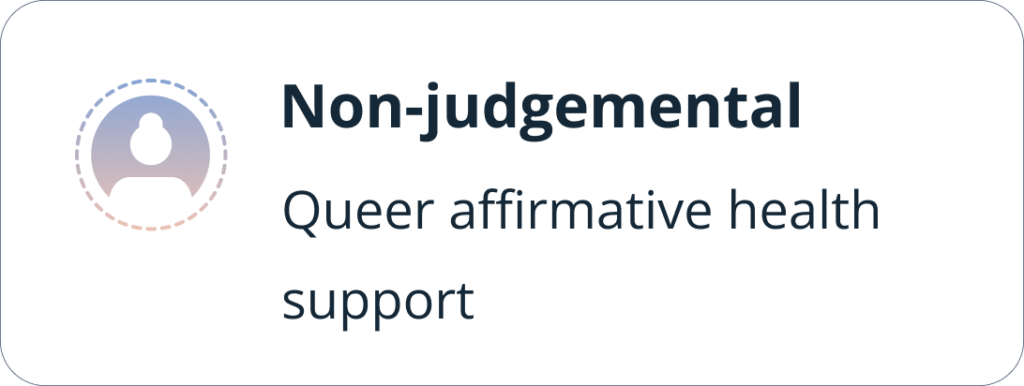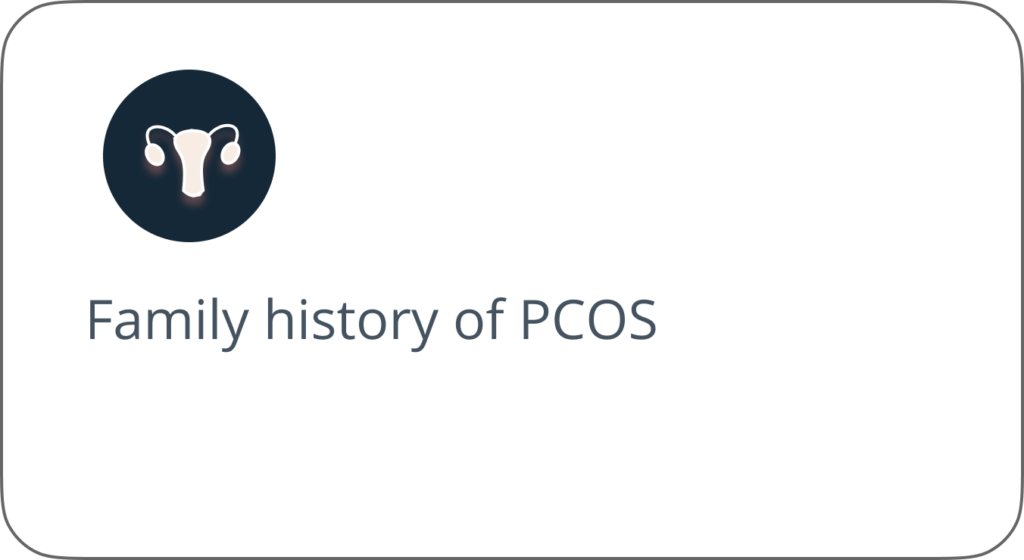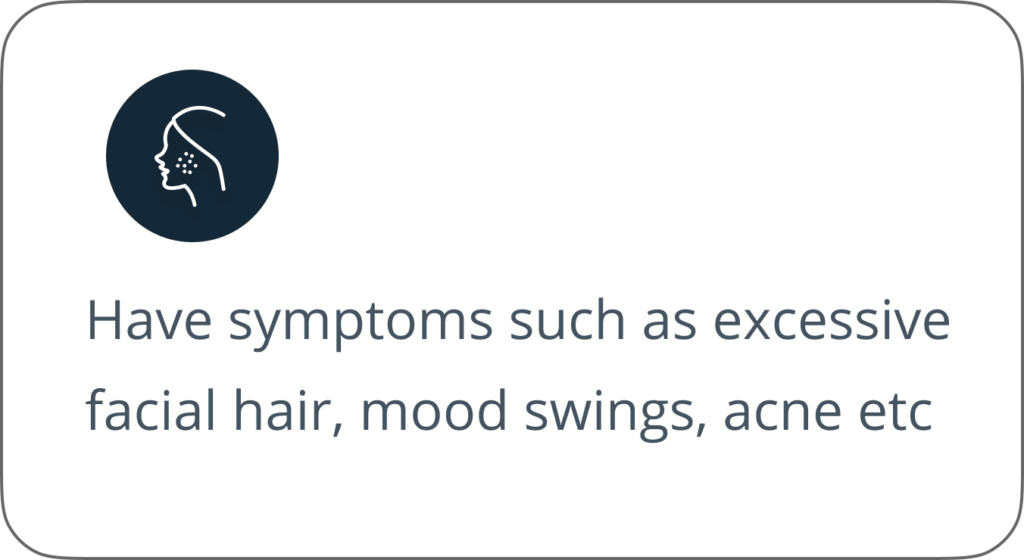
Balance is everything – at work, in relationships, and most importantly, in your hormones!

Why choose us







Don’t worry, PCOS symptoms are treatable – here’s why you should get tested:



Hear from people like yourself.


What all tests are included?
- Complete Blood Count (24 tests)
- Liver Function (11 tests)
- Thyroid Profile (T3 – T4 – TSH)
- Free (Bioavailable) Testosterone
- HOMA-IR
- Iron deficiency (3 tests)
- Lipid Profile (Heart) (8 tests)
- Diabetes screening (blood sugar, HbA1c)
- Prolactin
- Fasting Insulin
- Kidney Function (5 tests)
- Total Testosterone
- Vitamin D
- Vitamin B12
- C-Reactive Protein (CRP)
Polycystic Ovary Syndrome or PCOS is one of the most common hormonal disorders affecting women in their reproductive years, prevalent worldwide. Data suggests up to 1 in 5 women experience PCOS. This may look like irregular periods, acne, excess hair growth, hair fall, mental health concerns & fatigue. Most women may have PCOS and would not know it until they get their PCOS test or hormonal imbalance tests done.
If you have PCOS, your ovaries produce unusually high levels of hormones called androgens. This causes your reproductive hormones to become imbalanced. As a result, people with PCOS often have erratic menstrual cycles, missed periods, or unpredictable ovulation.
PCOS can impact various functions in your body based on the hormonal irregularity you experience. The symptoms can exist in different combinations for each individual and the best way to confirm would be to get your PCOS test done. Symptoms can include:
- Irregular periods (Inconsistent, delayed, or lengthy periods)
- Acne/hirsutism/hair fall
- Weight gain
- Fatigue
- Mental health concerns, etc.
There are different predominant causes of PCOS, like:
- Insulin is released in response to a hike in glucose levels in the blood. Elevated insulin levels over time can be the reason for PCOS symptoms like irregular periods, excess hair growth, fertility issues, etc.
- Adrenal factors are stress-related. Stress elevates the release of androgen hormone, which affects menstrual and fertility functions in women. So, increased stress may lead to more PCOS symptoms!
- Inflammation is the response your body generates to fight off a foreign invader. Some food elements like gluten, casein, sugar, etc can result in inflammation. This can affect the healthy cells in our gut, leading to symptoms of PCOS like digestive issues, food sensitivity, etc.
Understanding the root cause through your PCOS test/ hormonal imbalance test is important to manage your symptoms better.
PCOS (Polycystic Ovary Syndrome) is a hormonal disorder that affects women of childbearing age. Women with PCOS usually have at least two of the following three conditions:
- Irregular menstrual cycles
- Ovaries (on ultrasound scan) show fluid-filled sacs or cysts
- Signs of excess androgens ( male hormones) on examination or blood test- acne, hair loss ( make the pattern), hirsutism ( growth of extra unwanted hair) on the face, chin, and other parts of the body where women typically do not have hair.
Your physician will look for symptoms and also ask you to get your PCOS tests to diagnose the condition accurately. It’s important to rule out underactive thyroid before making a diagnosis of PCOS, as symptoms often look similar.
Treatments can help you manage the symptoms of polycystic ovary syndrome (PCOS) and lower your odds of long-term health problems such as diabetes and heart diseases. The treatment is based on the severity of the condition and the patient’s needs. For example, if you want to get pregnant and are having trouble, your treatment would focus on helping you conceive. If you want to tame PCOS-related acne, your treatment would be geared toward skin problems.
Most women with PCOS are found to have an imbalance in certain hormones, which may include:
- Raised levels of testosterone
Testosterone is often thought of as a male hormone, although all women usually produce it in small amounts.
- Raised levels of luteinising hormone (LH)
LH stimulates ovulation but may have an abnormal effect on the ovaries if the levels are too high.
- Low levels of sex hormone-binding globulin (SHBG)
A protein in the blood that binds to testosterone and reduces its effects.
- Raised levels of prolactin (only in some women with PCOS)
A hormone that stimulates the breast glands to produce milk in pregnancy.
Many complications are associated with PCOS, and infertility is one of them. If you have PCOS, it may become difficult to achieve a pregnancy and you may need hormonal imbalance treatment. But, it’s certainly not impossible. Taking the required help from a specialist at the right time can help you conceive.
Once you get your PCOS test results and consult your gynaecologist, start focusing on a healthy diet and good nutrition. This will help manage your PCOS journey better by:
- Estrogen dominance
- Balancing your hormones
- Managing the insulin levels
- Managing your weight
- Managing other PCOS- related symptoms
PCOS if not addressed early can cause:
- Diabetes
- High blood pressure
- Cholesterol issues
- Sleep disorders
- Mental health issues
Get your PCOS tests done and talk to your doctor for treatment options. This will not only help you manage your PCOS symptoms better but also prevent any future complications.




